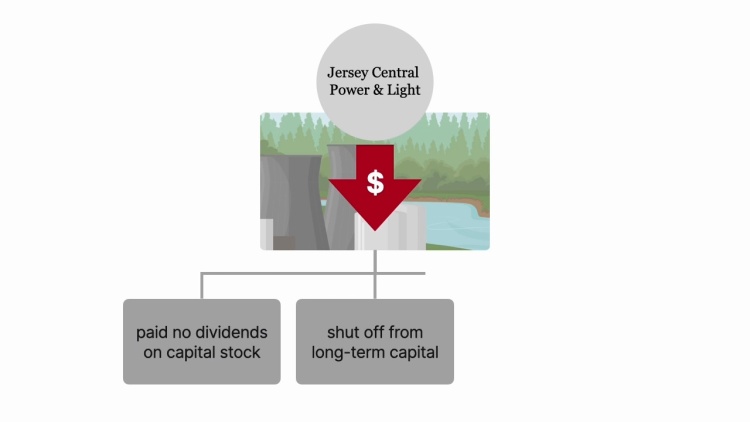Jersey Central Power & Light v. Federal Energy Regulatory Commission
United States Court of Appeals for the District of Columbia Circuit
810 F.2d 1168 (1987)
- Written by Robert Cane, JD
Facts
Jersey Central Power & Light Company (Jersey) (plaintiff) invested $397 million in planning the Forked River nuclear-power plant. However, the project was canceled before completion. Jersey sought to amortize the cost of the plant in its rate base over a 15-year period. A rate base comprised the total costs and expenditures to be recovered by a utility from its customers. The Federal Energy Regulatory Commission (the commission) (defendant) determined that the canceled plant was not used and useful. The result was that the principal costs of the plant were permitted to be charged to customers over a 15-year period, but the interest costs of the investment in the plant had to be charged to Jersey’s shareholders. Notably, Jersey had not paid dividends on its common stock for four years and had been unable to sell debt securities like bonds to raise capital. Jersey’s only source of capital was a revolving-credit agreement, which was subject to cancellation at any time. Further, the rates proposed by Jersey were lower than the rates of nearby utilities. The commission treated Jersey’s poor financial condition as irrelevant and found, without basis, Jersey’s rates to be exploitative. The commission issued orders modifying Jersey’s proposed rate schedules and requiring the company to file reduced rates. Jersey requested a hearing, but the commission refused and reduced Jersey’s rates. Jersey filed a petition for review of the commission’s orders.
Rule of Law
Issue
Holding and Reasoning (Bork, J.)
Concurrence (Starr, J.)
Dissent (Mikva, J.)
What to do next…
Here's why 907,000 law students have relied on our case briefs:
- Written by law professors and practitioners, not other law students. 47,100 briefs, keyed to 996 casebooks. Top-notch customer support.
- The right amount of information, includes the facts, issues, rule of law, holding and reasoning, and any concurrences and dissents.
- Access in your classes, works on your mobile and tablet. Massive library of related video lessons and high quality multiple-choice questions.
- Easy to use, uniform format for every case brief. Written in plain English, not in legalese. Our briefs summarize and simplify; they don’t just repeat the court’s language.





